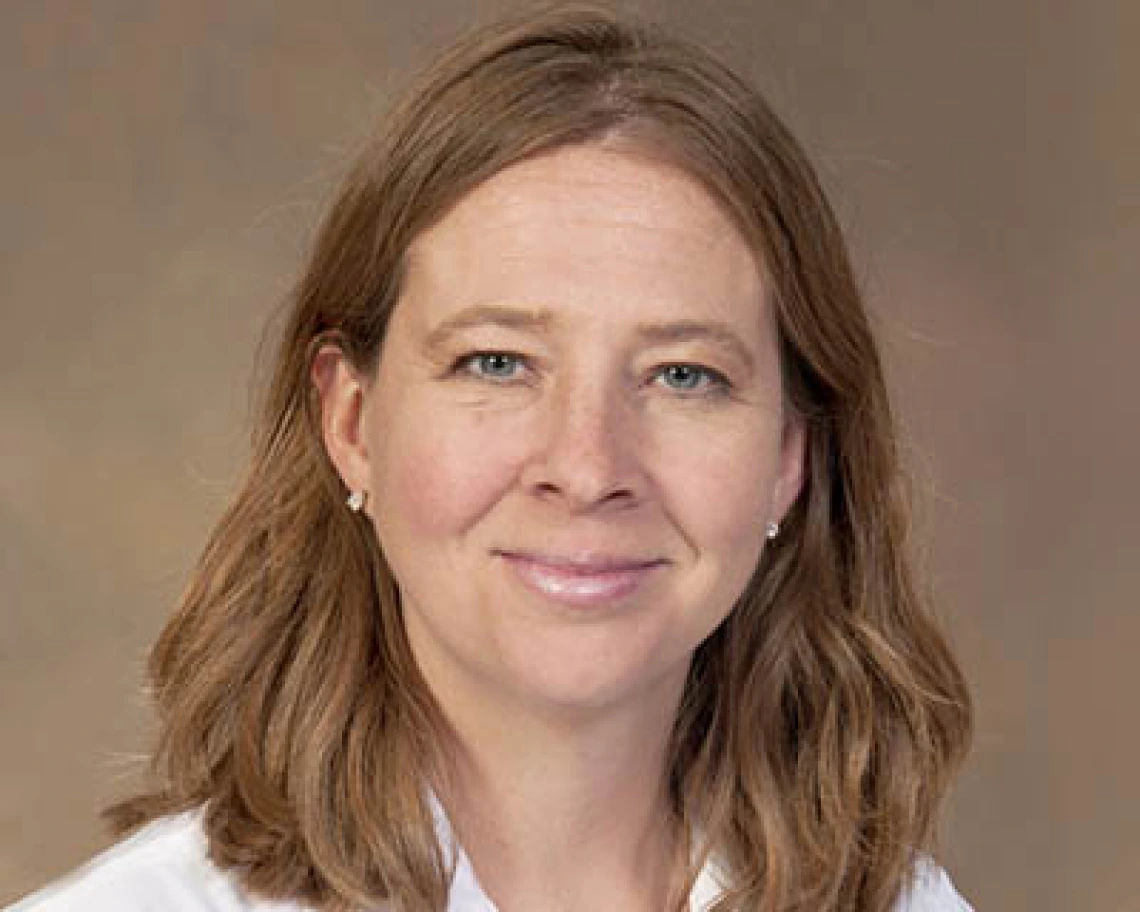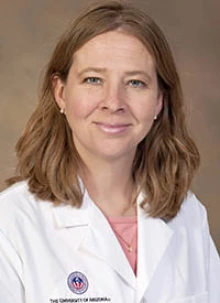UArizona Steele Children’s Research Center Seeks to Enhance Care for Children with Complex Lung Disorders
A new federal grant ensures the Pediatric Pulmonary Center at the University of Arizona Health Sciences will continue building skills of health-care providers to care for such children and their families.

TUCSON, Ariz. — Children with complex respiratory disorders have very special medical needs, but often lack access to the special medical care they require – and during the COVID-19 pandemic, these children are at an even greater health risk.
But thanks to a $1.7 million grant from the Maternal and Child Health Bureau of the Health Resources and Services Administration (HRSA), the Pediatric Pulmonary Center at the University of Arizona Steele Children’s Research Center will continue its mission to enhance health care for children with these complex pulmonary disorders. The award from HRSA, part of the U.S. Department of Health and Human Services, spans five years.

Cori Daines, MD, chief of pediatric pulmonary and sleep medicine division and director of the Pediatric Pulmonary Center at the University of Arizona College of Medicine – Tucson (Photo: University of Arizona Health Sciences)
About 6 million U.S. children have chronic difficulty breathing or have other respiratory problems, and 5.5 million children suffer from asthma, according to the Asthma and Allergy Foundation of America. Despite this, the number of providers to help them is relatively small: Only 150 pediatric pulmonologists serve all of HRSA Region IX, which includes Arizona, California, Hawaii, Nevada and numerous Pacific Ocean island communities. This creates barriers to access to care for much of the region, Dr. Daines pointed out.
Established in 2000, and affiliated with the UArizona Department of Pediatrics and the Steele Children’s Research Center at the College of Medicine – Tucson, the Pediatric Pulmonary Center is focused on building capacity of health-care providers to serve children with special medical needs throughout HRSA Region IX. The center seeks to build the skills of health-care providers – including doctors, nurses, pharmacists, social workers and nutritionists – to care for these children and their families in a coordinated, interdisciplinary manner. Its faculty members provide academic and clinical training to advanced-degree health sciences students, in-service training to medical professionals throughout the region, skill-building support to parents of children with special health-care needs, and a substantial on-line resource library.
Since its inception two decades ago, the center has graduated 75 future leaders in the fields of pediatric medicine, nursing, respiratory therapy, social work, nutrition and pharmacy. It also has provided training to enhance the capabilities of countless parents and maternal and child health practitioners.
Research reported in this publication is supported by funding from the Maternal and Child Health Bureau of the Health Resources and Services Administration, a unit of the U.S. Department of Health and Human Services, under Award No. T72MC00012.
# # #
NOTE: Photo available upon request.
About the University of Arizona Steele Children’s Research Center
The University of Arizona Steele Children’s Research Center is one of the prestigious Centers of Excellence in the College of Medicine – Tucson at the UArizona Health Sciences. It is the state’s only academic pediatric research center designated by the Arizona Board of Regents, and the only facility in Southern Arizona where researchers and physician-scientists are dedicated to advancing medical knowledge through basic and translational research to improve children’s health. As researchers, they seek to discover answers to children’s medical mysteries. As physician-scientists, they provide compassionate care to hospitalized patients at Banner Children’s at Diamond Children’s Medical Center and pediatric outpatient clinics throughout Tucson and the state. And, as faculty members with the UArizona Department of Pediatrics, they teach and train the next generation of pediatricians and pediatric researchers. For more information: steelecenter.arizona.edu (Follow us: Facebook | Twitter | Instagram).
About the University of Arizona College of Medicine –Tucson
The University of Arizona College of Medicine – Tucson is shaping the future of medicine through state-of-the-art medical education programs, groundbreaking research and advancements in patient care in Arizona and beyond. Founded in 1967, the college boasts more than 50 years of innovation, ranking among the top medical schools in the nation for research and primary care. Through the university's partnership with Banner Health, one of the largest nonprofit health care systems in the country, the college is leading the way in academic medicine. For more information, stvisit medicine.arizona.edu (Follow us: Facebook | Twitter | Instagram | LinkedIn).
About the University of Arizona Health Sciences
The University of Arizona Health Sciences is the statewide leader in biomedical research and health professions training. UArizona Health Sciences includes the Colleges of Medicine (Tucson and Phoenix), Nursing, Pharmacy, and the Mel and Enid Zuckerman College of Public Health, with main campus locations in Tucson and the Phoenix Biomedical Campus in downtown Phoenix. From these vantage points, Health Sciences reaches across the state of Arizona, the greater Southwest and around the world to provide next-generation education, research and outreach. A major economic engine, Health Sciences employs nearly 5,000 people, has approximately 4,000 students and 900 faculty members, and garners $200 million in research grants and contracts annually. For more information: uahs.arizona.edu (Follow us: Facebook | Twitter | YouTube | LinkedIn | Instagram).

